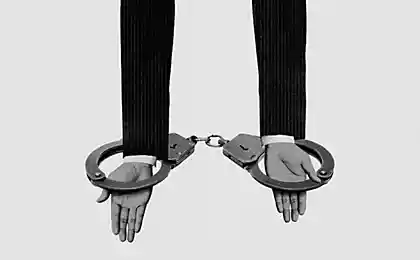255
10 Signs You've Made Misfortune Your Habit

Unhappiness is not just an accidental state that overtakes us in difficult moments of life. Sometimes it becomes a chronic habit that we unconsciously repeat day after day. This habit imperceptibly transforms our perception of reality, forces us to adhere to behaviors that reinforce a negative worldview, and creates the illusion of security in predictable discomfort. But how do we know that we have fallen into this psychological trap? Let’s look at ten key signs that unhappiness has become a habit.
1. You always expect the worst.
The first and most obvious sign that unhappiness has become a habit is the constant expectation of failure and disappointment. You automatically assume a negative outcome of any situation, even without objective reasons. This process, which psychologists call “catastrophy,” becomes so familiar that you don’t notice how regularly you sabotage your own perspectives.
An example from life:
Maria received an invitation to an interesting event, but instead of joy and anticipation, she immediately began to compile a list of potential problems: “There will be too many people there,” “I’ll probably say something wrong,” “I was invited only out of courtesy.” As a result, she declined the invitation, without even trying to assess the situation objectively.
2. You find comfort in your own suffering.
Paradoxically, people who are used to unhappiness often experience strange satisfaction from their own suffering. This phenomenon, known as “secondary benefit,” is that negative emotions can give a sense of control, attract the attention of others, or serve as an excuse for passivity. Misfortune becomes a comfortable space where you do not have to take risks or take on something new.
Research in neuropsychology shows that the brain can form stable neural connections even with negative emotional states. As a result, a person unconsciously begins to reproduce habitual patterns of unhappiness as they appear familiar and predictable.
3. You are prone to negative generalizations

When unhappiness becomes a habit, one negative situation easily becomes a universal law of life. You use words like “always,” “never,” “everyone,” and “no one” to describe negative events: “I always screw things up,” “No one ever understands me,” “All my endeavors fail.” Such cognitive distortions don’t just distort reality; they reinforce the belief that unhappiness is inevitable.
Scientific perspective:
Cognitive behavioral therapy (CBT) views negative generalizations as one of the key factors in maintaining depression and anxiety. According to research published in the Journal of Abnormal Psychology, such thought patterns activate certain neural pathways that become dominant over time, creating a stable filter for perception of reality.
4. You resist positive change.
Ironically, people who are used to unhappiness often experience discomfort from positive changes in their lives. This phenomenon, known as “fear of success” or “self-sabotage syndrome,” manifests itself in a subconscious resistance to anything that can disrupt a habitual state of unhappiness. You may find reasons to forgo new opportunities, doubt your own accomplishments, or unconsciously create problems that return you to a familiar state of discomfort.
For example, a person accustomed to unhappiness may sabotage a promising relationship by finding flaws in a partner, or reject a promotion by convincing himself or herself that he or she is not competent enough for a new position. This behavior maintains the status quo and protects against the uncertainty that accompanies positive change.
5. You are constantly comparing yourself to others.
The habit of unhappiness often manifests itself in the continuous comparison of oneself with others, and always not in one’s favor. The achievements of others are not inspired, but envy or feelings of inferiority. Social networks are turning into a tool of self-torture, where every successful post of friends becomes proof of your failure.
Practical recommendations:
- Set specific limits on the use of social media
- Create a list of your achievements and update it regularly.
- Practice conscious gratitude for what you have.
- Replace global comparisons with tracking your personal progress
6. You see criticism as proof of your worthlessness.
People accustomed to unhappiness often have fragile self-esteem that plummets at the slightest criticism. Any comments, even constructive ones, are perceived as confirmation of negative beliefs about oneself. Instead of using feedback to grow, you interpret it as evidence of your own failure.
This pattern creates a vicious circle: you expect criticism, then notice even minor negative signals (ignoring positive ones), and then use them as proof of your rightness. This approach not only strengthens the habit of unhappiness, but also hinders personal growth by blocking the ability to learn from mistakes.
7. You live with past grievances and disappointments

The habit of unhappiness often manifests itself in the inability to let go of past traumas and disappointments. You continually revisit painful memories, analyze them, relive them, and use them as a filter to perceive the present. This process, which psychologists call rumination, not only supports negative emotions, but also prevents the formation of new, positive experiences.
Research shows:
According to data published in the journal Psychological Science, persistent rumination activates the same neural pathways as primary trauma, reinforcing and reinforcing negative emotional states. In other words, each time you mentally revisit painful past events, your brain partially relives them, sustaining a cycle of unhappiness.
8. You deny your achievements.
People who are used to unhappiness often suffer from the so-called “impostor syndrome” – the inability to recognize their own achievements and competence. You tend to attribute your successes to luck, other people’s favors, or chance, while exaggerating your failures and mistakes.
This distorted perception creates cognitive dissonance: any evidence of your competence is perceived as an anomaly or accident, not as a result of your abilities and efforts. As a result, even objective achievements do not bring satisfaction and joy, reinforcing the habit of unhappiness.
9. You surround yourself with negative people.
One of the most telling signs of the habit of unhappiness is the tendency to surround yourself with negative people. You subconsciously choose friends and partners who share or even reinforce your negative worldview. This environment becomes an echo chamber, where pessimistic assessments and gloomy forecasts are constantly heard.
Sociological perspective:
Research conducted by sociologists at Harvard University confirms that emotional states have “social contagion.” Regular communication with people prone to negativity significantly increases the likelihood of forming and maintaining a pessimistic worldview. This phenomenon is explained by both social modeling and neurobiological mechanisms of empathy.
10. You fear hope.
Perhaps the deepest sign that unhappiness has become your habit is the fear of hope. You avoid optimistic expectations for fear of disappointment and view hope as naivety or self-deception. As a result, you prepare in advance for the worst, depriving yourself of the opportunity to experience the joy of anticipation and positive emotions.
This mechanism, known as “defensive pessimism,” is initially designed to protect against disappointment, but eventually becomes a self-fulfilling prophecy. By giving up hope, you deprive yourself of the motivation and energy needed to achieve goals and overcome challenges, making negative outcomes more likely.
How to break the cycle of habitual unhappiness
Realizing that unhappiness has become a habit is the first and most important step to change. Next, you need to consistently transform the patterns of thinking and behavior that support this state:
- Practice mindfulness and observe your thoughts without judgment.
- Regularly challenge negative generalizations by demanding evidence.
- Gradually expand your comfort zone, getting used to positive emotions.
- Create new neural connections through regular gratitude practices
- Surround yourself with people who support your desire for change.
- Contact a specialist if independent efforts do not bring results
Glossary of terms
Catastrophe
Cognitive distortion, in which a person exaggerates the negative consequences of a situation and perceives them as insurmountable, terrible or unbearable.
Secondary benefit
A psychological mechanism in which a person receives certain benefits from his problem state (for example, the attention of others, exemption from responsibility).
Cognitive distortions
Systematic errors in thinking that lead to inadequate interpretation of reality and can contribute to the development of psychological problems.
Rumination
The process of obsessive, repetitive thinking about negative events, problems, or emotions that does not lead to constructive solutions.
Impostor syndrome
A psychological phenomenon in which a person does not recognize his own achievements and competence, considering himself not worthy of success.
Neuroplasticity
The ability of the brain to change its structure and function in response to experience, learning, and other factors.
Defensive pessimism
A strategy in which a person sets unrealistically low expectations and presents all possible negative scenarios to prepare for the worst.
Cognitive behavioral therapy (CBT)
A psychotherapeutic approach aimed at changing dysfunctional thoughts, emotions and behaviors through systematic work with cognitive distortions.
9 things you should not do on the weekend, if you want to take a break from everyday life
What is the scarcity effect and why do you buy what you don’t need?























